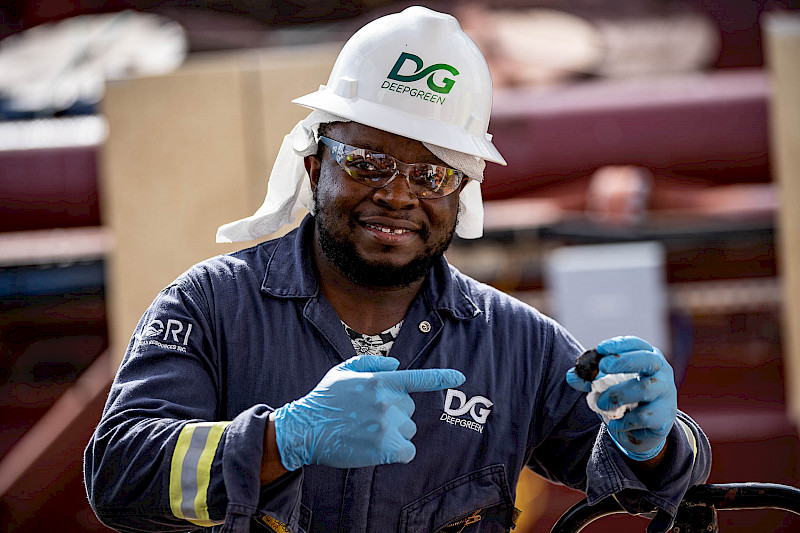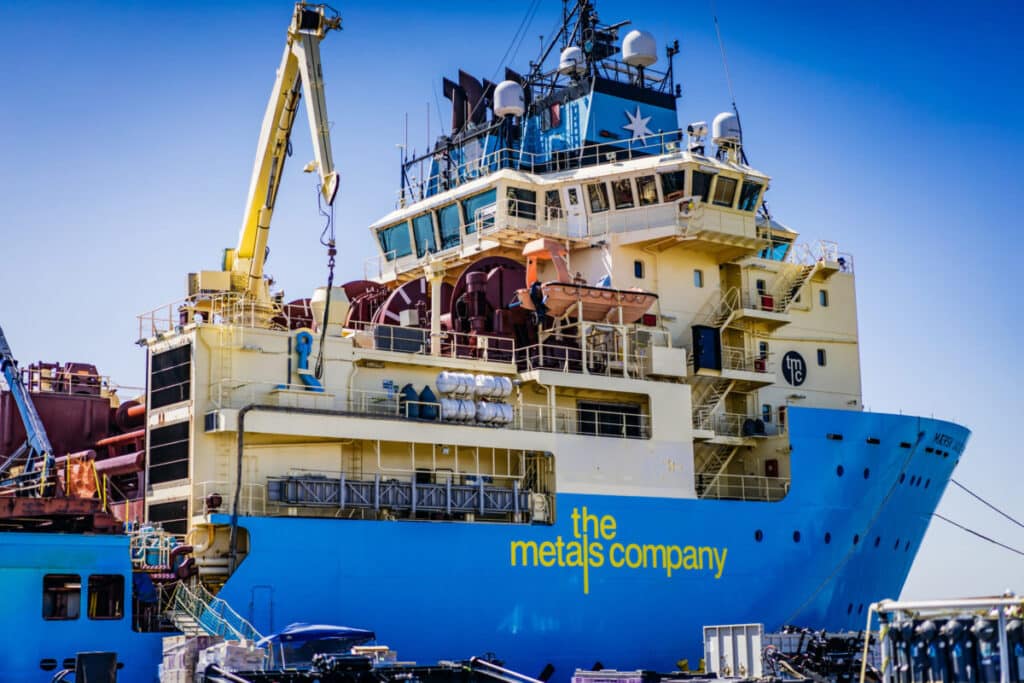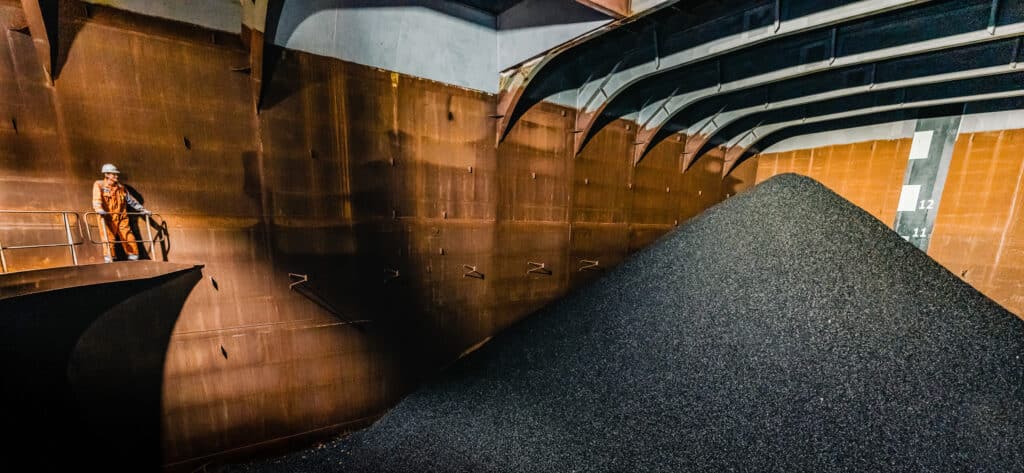A former child laborer in the mineral mines of the Congo, Aganze Baciyunjuze Gloire (Glory) knows firsthand the perils of the region’s mining practices and the extreme poverty that drives young people to put their lives on the line. Glory was selected as a trainee by the International Seabed Authority and is currently aboard The Metals Company’s research vessel in the Clarion Clipperton Zone of the Pacific.
Since I was very young, I have been passionate about geoscience. I always wanted to make mining geology my career. Back in 2008, soon after I turned 17 years old, this passion blindly pushed me to make bad decisions.
A guy came to our village looking for 10 people to help him do some so-called construction work in a place called Irhongo, convincing people to be remunerated with an amount ranging between $10 and $20 daily. I knew that the money would help me pay for the upcoming school year, since my dad’s work wasn’t that decent, plus my little brothers had to study as well.
Early in the morning of July 29, 2008, I left my grandparents’ house without leaving any notice whatsoever. We walked for eight hours, carrying jerry cans, pickaxes, shovels and heavy hammers. When we reached the Irhongo District the guy revealed that we were heading to Mukungwe to make huge amounts of money and that the pay would surpass what he initially told us. This was the opportunity for me to finally explore the mining world I was eagerly dreaming of.The work consisted of entering a deep shaft in the ground, collecting soil and rocks, bringing them up to the surface, and crushing and washing them before separation and amalgamation with mercury. The second day was one of the worst experiences ever. After being subjected to tough work in extreme heat and heavy rains from 6 a.m. to 6 p.m. without eating anything, he told us to carry the ore minerals far away from the camp.
The following day, around 5:30 a.m. when we were getting ready to go to the site, someone knocked on our door. The boss went to open the door and we heard them discussing loudly the ore minerals we took away the evening prior. I immediately had a bad foreboding.
Later we heard gunshots. The boss ordered us not to leave the house, but my instinct told me otherwise. I took two little friends. We started crawling until we got to a big bush where we stayed hidden. Around 7 p.m. we ascended a mountain and went into a village called Madaka where we spent the night. In the morning, we heard that some people were killed at Mukungwe. We decided never to go back to that area.
During the past 25 years, in search of survival solutions, artisanal mining through “hand picking” has mobilized a huge number of Congolese people, children included, who are forced to work in absolutely precarious, slavery-like conditions that make their lives very vulnerable.
Four years ago, I lost a young friend of mine whom I met at Tshondo when I was carrying out my undergraduate research. He got buried underground after a slope collapsed. I really felt devastated when I heard this terrifying news because I know what it feels like when a kid is sent more than 450 feet underground, in a narrow, makeshift tunnel equipped with headlamps and his bare hands to pull out several kilograms of ore minerals.
In 2016, I co-founded a local nonprofit and a consulting office gathering young geopreneurs from all walks of life to revitalize our quest for environmental protection and our fight against child labor in mining quarries. We had zero funding but prodigious ideas. We managed to co-organize different activities, delivering a consistent growth in event attendance. We even got promises of financial support from local authorities, but soon after the election, they let us down. This was one of the toughest moments of my life. I did not have any other choice than putting myself back together and giving focus to my studies.

I struggled to self-sponsor my master’s studies, but I did not quit. I persisted, picked myself up, brushed off the dust and worked harder. I defended my master’s project and graduated on December 21, 2018.
It’s been almost two weeks since I got to the Clarion Clipperton Zone aboard the Maersk Launcher, and so far, this is one the best experiences of my career. The crew is awesome and I am very happy to be trained alongside engineers from all over the world.
Just like The Metals Company, I see myself as someone who can make a major impact in this world. And before I fade away, I want to see how much of an impact I can have on earth, for all these Congolese children, victims of child labor in artisanal mines, who look up to me for guidance and words of encouragement.
Gloire earned a bachelor’s degree in exploration and mining geology from the Official University of Bukavu and a master’s degree in engineering geology from the University of Nairobi. After his TMC training fellowship he plans to pursue a PhD in mining engineering.





